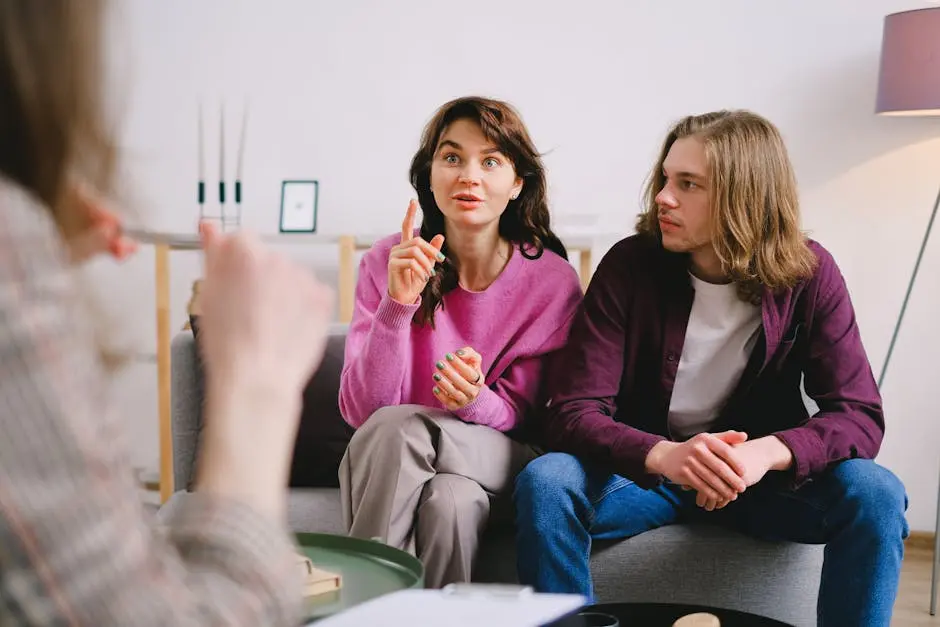Relationships require work and understanding to thrive. Sometimes, despite our best efforts, we face challenges that can feel overwhelming. That’s where relationship counseling comes in. In this blog, we’ll explore how this transformative process can help partners reconnect, strengthen their bond, and pave the way for a healthier future together.
Understanding the Role of Relationship Counseling
Relationship counseling, often referred to as couples therapy, serves as a platform for partners to explore and understand the nuances of their relationship. Counselors provide a safe space for both individuals to express their thoughts and feelings, addressing issues that may be causing strain. This approach allows each partner to articulate emotions without fear of judgment or reprisal, creating an environment where genuine understanding can flourish.
Through counseling, relationships receive the attention they deserve, which often helps prevent small disagreements from escalating into significant issues. A professional counselor guides this journey, offering insights grounded in psychological theories and tailored to the couple’s unique dynamics. By facilitating these discussions, counseling enables both partners to not only voice their concerns but also listen to each other actively, paving the path towards healing and mutual respect.
Communicating Effectively with Professional Guidance
One of the most significant benefits of relationship counseling is the enhancement of communication skills. Often, partners struggle to communicate in a way that is both effective and empathetic. A counselor helps to bridge this gap, teaching techniques that promote healthier and more constructive dialogue. By learning to communicate effectively, partners avoid misinterpretations and misunderstandings, leading to a more harmonious relationship.
Communication is the cornerstone of any thriving relationship. A counselor helps partners to identify patterns of miscommunication, offering strategies to reframe conversations that may otherwise become arguments. This process is not about winning or losing but about understanding, which starts by genuinely hearing the other person’s perspective. Through counseling, partners can practice using ‘I’ statements, non-verbal cues, and active listening techniques to enhance their mutual understanding.
Identifying and Addressing Core Issues
Through counseling, couples often uncover underlying issues that may not be immediately apparent. By identifying these core concerns, partners can work towards resolving them in a supportive environment. This process allows for growth and healing, often leading to a more connected partnership. Many couples find that underlying issues, such as trust matters or unresolved conflicts, are easily managed with the guidance of a counselor.
The journey of identifying core issues is transformative. In many cases, what seems like a surface-level disagreement is linked to deeper, more ingrained patterns of behavior. Counseling sessions provide a framework for partners to explore family backgrounds, past relationships, and personal insecurities that may be influencing current interactions. Understanding these aspects allows couples to address the real source of tension and create lasting changes.
Developing Conflict Resolution Strategies
Conflict is a natural part of any relationship, but how partners handle these disagreements can make all the difference. In counseling, couples learn practical strategies for resolving conflicts, emphasizing understanding and compromise. These skills are crucial for maintaining harmony within a relationship. By learning to approach conflicts calmly and with an open mind, partners can reduce stress and build a supportive environment for themselves and their relationship.
Effective conflict resolution goes beyond just finding a solution; it’s about respecting differences and acknowledging each partner’s perspective. Counselors introduce methods such as taking time-outs during heated arguments, focusing on the issue rather than the person, and seeking win-win solutions. With these tools, partners are better equipped to handle disagreements constructively, ensuring that conflicts are resolved, not just postponed.
Strengthening Emotional Intimacy
Beyond resolving conflicts and improving communication, relationship counseling also focuses on building emotional intimacy. As partners share more about themselves in therapy, they often grow closer, fostering a deeper connection that enhances their overall relationship satisfaction. Emotional intimacy is about being vulnerable and open with each other, creating a space where both partners feel validated and cherished.
In counseling, exercises that promote emotional intimacy may include exploring feelings of gratitude, discussing hopes and dreams, and practicing empathy exercises. These activities help partners to more deeply understand each other’s emotional worlds and strengthen their bond. As couples grow more emotionally connected, they often experience increased satisfaction and joy in their relationship, realizing the true potential of their partnership.
Building a Lasting Partnership Through Counseling
Navigating the landscape of a relationship isn’t always easy, but relationship counseling offers a guiding light. By embracing open communication, gaining insights from a professional perspective, and learning effective conflict resolution strategies, couples can transform their partnerships into nurturing and supportive spaces. Whether you’re facing particular challenges or simply want to strengthen your bond, counseling can be a valuable tool in building a lasting and joyful relationship.





